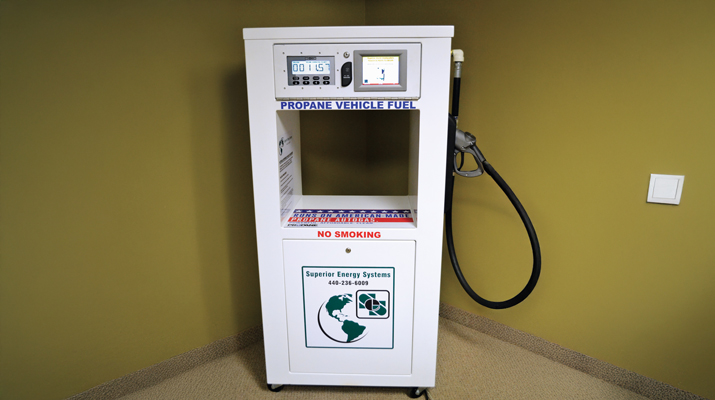Get a handle on hiring and promoting
This is the second in a series of columns inspired by the late management guru Peter Drucker. This month, we apply Drucker’s thoughts on the hiring and promotion process to the retail propane company.
 Carl Hughes |
Since the primary role of management is to lead a team that capitalizes on individual strengths for joint accomplishments, it is important to focus more on our candidates’ strengths than their weaknesses.
Management’s challenge is to specify the skills required for a particular role.
As most managers know, it’s a challenge to clearly outline the tasks and responsibilities of a new role. This involves a great deal of thought about expectations for the position. Generally this is more than a new manager wants to take on, yet it is often the unspoken expectations of the manager – when not completed satisfactorily – that become a problem for a new hire.
Senior leadership must model the behavior of a newly hired manager by clearly specifying the new manager’s responsibilities so that he or she will do the same before making any hiring decisions of their own.
Look at several candidates
Even if you have someone in mind for a particular role, it’s always good to talk to more than one candidate. The benefits of interviewing multiple candidates are that you may find someone even better than the first candidate, you may validate that your first candidate is still the best, and/or the process of interviewing may make what you expect from the role clearer.
As you work through the interview process, assess how the strengths of each candidate stack up against the specialized needs of the role.
Also, always be sure to get references from people who have worked closely with the prospective hire. References are often overlooked, but will always provide insight into the candidate’s character.
If you feel strongly about a candidate you’ve interviewed, but more than one reference is not glowing, watch out. You may be seriously disappointed with the person’s skills or attitude over the long haul.
In all cases when you hire or promote someone, within three months you should reassess with the employee the expectations of the role.
To be clear, it is management’s failure if this step is not taken. It is not the employee’s fault if the expectations were not clear at the beginning. It’s crucial to reevaluate and openly communicate with the new hire after he or she has been in the new role for a brief period.
Skills change
Skills to succeed in a role are always different than the skills it took to land the role. The promotion from a successful sales person into the sales manager represents a transition from two vastly different skills. Likewise, the transition from a driver to the manager of a small retail plant is an enormous change in responsibilities.
Does the candidate possess the skills needed to be successful at the new role? Has management made the expectations of the new role clear?
Consider some of the important roles and tasks we’ve just introduced that are to be learned and mastered by a newly hired or promoted manager. None of those skills of your new manager were acquired as a service technician, driver or sales person.
Promote on performance
Common career paths in our industry are: salesman to sales manager, driver to manager, plant manager to remote plant manager, customer service representative to office manager and accountant to office manager.
Unproven potential has not provided the company with any value, and there is no guarantee that the individual is performance minded. Further, it is sufficient risk enough, as we will talk about later, that the promoted individual will be taking on new skills.
Always promote based on performance, not on competence or potential. Assign major tasks to those whose proven skills give the task the greatest chance of success. Then, delegate to new employees and managers those tasks that they can succeed at with little risk.
Carl Hughes is vice president of business development for Inergy LP. He can be reached at
Chughes@InergyServices.com
or 816-842-8181.
















